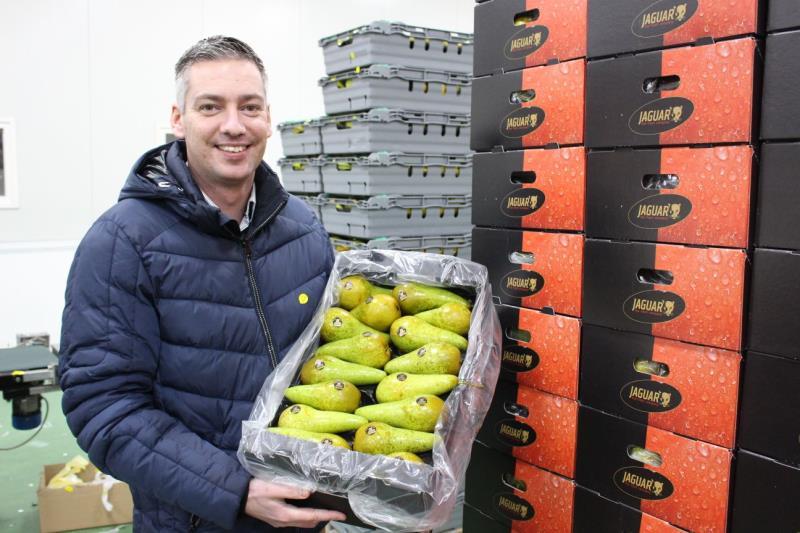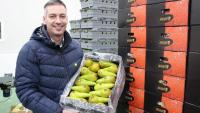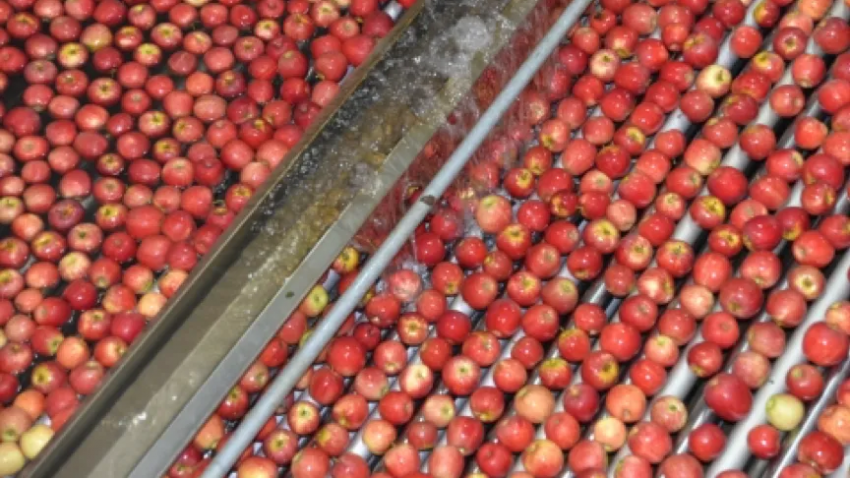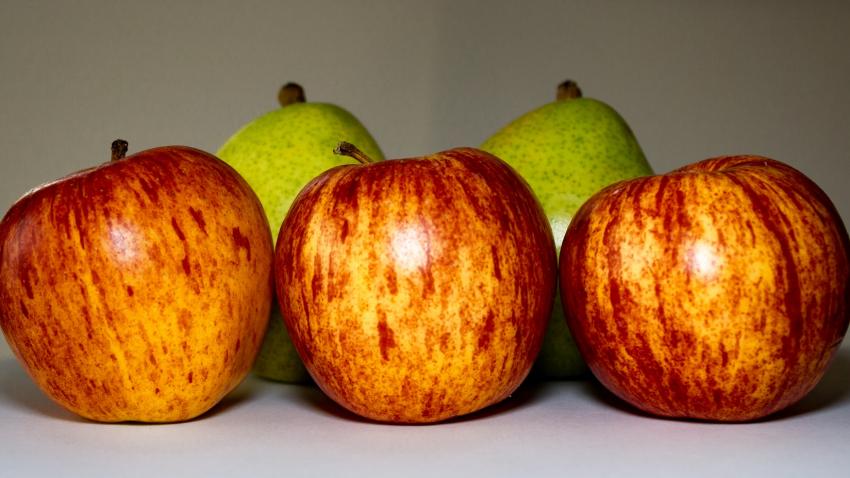You are here
Back to topBringing Jaguar's Dutch Conference Pears to China

What is a 'normal' pear is a matter of context. What a Westerner might call an Asian pear, a consumer in China would simply call a pear. And while Asian pears have long been a ubiquitous presence in the Chinese market, consumers have only in the past few years shown a spike in interest toward what they call 'Western' pears.
One standout has been conference pears from Jaguar of Holland, which have done especially well in the northern part of China.
But it hasn't always been smooth sailing for Dutch pears in China. For one thing, China produces a lot of pears, which means prices for domestic product are low and the imports are a high-end item that can seem quite expensive by comparison. And, although they are mostly different cultivars of the Asian pear (Pyrus pyrifolia), consumers in China have a range of domestic varieties to choose from.
But perhaps the most daunting challenge is that consumers here, accustomed to Asian pears, think of a pear as something that should be crunchy and perhaps even a bit tangy. The soft texture and high sweetness of conference pears and other European pear (Pyrus communis) varieties can be an unwelcome surprise. The idea that a pear needs to be left for several days at home to ripen can also be a turnoff.
So it's only after being on the market for more than three years that the payoff in developing the market has come for Jaguar's import company in China. Produce Report talked to Ms Sylvia Xu, senior sales manager for Jaguar's China subsidiary to understand more about the company's experience in the China market.
Headed up by CEO Ed Heijnen, Jaguar is a major supplier of conference pears and was among the first Dutch fruit companies to be certified to export to China. The volume of pears going to China has more than doubled in the past few years, and seems to be set to grow more.
Xu gives a lot of the credit to the uptick in sales to Jaguar's Chinese distributor, Shenyang Qupai Trading Co Ltd out of Liaoning province. Providing education and giving time to let consumers understand and grow accustomed to the differences between Asian pears and European pears is crucial to gaining more fans of the product. It's an area where Qupai's sales team, strong retail relationships and vertical integration make a real difference.
This coming season, the conference pears sold in the Chinese market will get some packaging changes to provide more education about the features of and ways of using the fruit, as well as QR codes that consumers can scan with their phones to learn more—an important feature in QR code-crazy China.
Xu attributes the conference pears' better success and consumer feedback in northern China to two factors. First, previous all the pears were coming in through the port of Dalian in northeastern China, so the supply was more concentrated in the north. Furthermore, there are some domestic pears available in northern China that resemble European pears, so consumers there are more likely to understand that not all pears are Asian pears and to have some familiarity with a softer, sweeter fruit. But for the past few years, imports have been shifted to Shanghai, so the eastern China market is also showing signs of picking up.
Xu says that if Jaguar had depended on a traditional wholesale model, success would have been difficult or even impossible. The success of Jaguar conference pears in China has been a result of a lot of work bringing the fruit directly to consumers through events and in-store promotions, which requires a supportive distributor with strong sales and marketing.
There is one company offering ripened pears in China, but they have not caught on so far. However, in China ready-to-eat avocados have started to gain the popularity. Ready-to-eat pears might also be a future trend, instead of asking consumers to wait for the pears to ripen at home.
Image Source: Jaguar















Add new comment